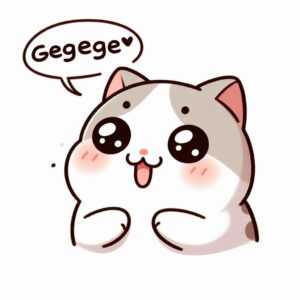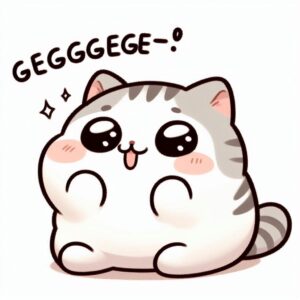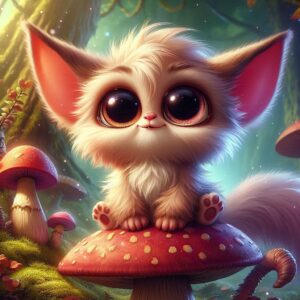ゲゲゲの~とは?
「ゲゲゲの~」が流行語となった背景
「ゲゲゲの~」というフレーズは、日本の漫画家・水木しげる氏による国民的作品『ゲゲゲの鬼太郎』に由来しています。もともとは妖怪をテーマにしたこの作品のタイトルに含まれていた言葉ですが、2000年代以降、再ブームとともに様々な形でこのフレーズが世間に浸透しました。特に2010年に放送されたNHKの朝の連続テレビ小説『ゲゲゲの女房』の影響が大きく、このドラマのヒットによって「ゲゲゲの~」という表現が再び人々の記憶に蘇りました。
「ゲゲゲの女房」による流行語化
『ゲゲゲの女房』は、水木しげる氏の妻である武良布枝さんの自伝を基にしたドラマで、漫画家として成功するまでの苦労と夫婦の絆を描いた感動的な物語です。この作品のタイトルに含まれる「ゲゲゲの~」という言い回しが親しまれるきっかけとなり、視聴者の間でさまざまな場面で真似されるようになりました。SNSやブログでは「ゲゲゲの〇〇(自分の名前や職業など)」といったパロディ的な用法が一種のブームとなり、若者から年配層まで幅広い世代で使われました。
言葉としての柔軟さと親しみ
「ゲゲゲの~」というフレーズが流行語として広まったのは、その語感のユニークさと、何にでも応用できる柔軟性があったからです。「ゲゲゲ」はそもそも水木しげる氏の笑い声や擬音から取られており、ちょっとしたユーモアや怖さを感じさせる音です。この擬音的な響きが人々の記憶に残りやすく、また「~の」という後ろに様々な言葉をつなげることで、誰でも簡単に自分だけの「ゲゲゲの~」を作ることができる点も人気の理由でした。
文化的影響とその後の展開
「ゲゲゲの~」は単なる流行語にとどまらず、作品や作者に対する再評価にもつながりました。水木しげる氏の妖怪文化や戦争体験など、彼の人生に深く触れた『ゲゲゲの女房』の放送をきっかけに、彼の他の著作や『ゲゲゲの鬼太郎』自体にも再び注目が集まりました。また、地方の観光地や商品名などでも「ゲゲゲの~」を模したネーミングが使われることがあり、地方創生や観光促進にまで影響を与えるケースも見られました。
愛される言葉としての「ゲゲゲの~」
「ゲゲゲの~」というフレーズは、単なる懐かしさにとどまらず、新しい文脈で使われることで多くの人々の心に届きました。特定のキャラクターや作品にとらわれず、誰もが自由に遊び心を持って使える点が、流行語としての価値を高めたのです。そして何よりも、この言葉の背景には、水木しげる氏の独自の世界観や、家族の支え、人生の重みがあり、そのストーリーが多くの人の共感を呼んだ結果として、「ゲゲゲの~」は単なる流行を超えた、時代を象徴する言葉として記憶されていきました。
The phrase “Gegege-no~” comes from the nationally known work “Gegege no Kitaro” by Japanese manga artist Shigeru Mizuki. The phrase was originally included in the title of this yokai-themed work, but since the 2000s, along with a renewed boom, the phrase has permeated the public in various forms. The influence of NHK’s morning TV series “Gegege no Nyobo” broadcast in 2010 was particularly significant, and the hit TV drama brought the phrase “Gegege no Nyobo” back into people’s memories.
Gegege no Nyobo” has become a popular phrase
Gegege no Nyobo” is a drama based on the autobiography of Shigeru Mizuki’s wife, Fue Takera, and is a touching story about the hardships she went through to become a successful manga artist and the bond between the couple. The phrase “Gegege no 00” (Gegege’s name, occupation, etc.) in the title of the drama became popular and was imitated in various situations by viewers, and its parody-like usage on social networking sites and blogs became a kind of boom, and was used by a wide range of people from young to old. The term was used by a wide range of people, from the young to the elderly.Flexibility and familiarity as a word
The phrase “Gegege-no~” became a popular phrase because of its uniqueness and flexibility in application. Gegege” was originally taken from the laughter and onomatopoeia of Shigeru Mizuki, a sound that evokes a sense of humor and fear. This onomatopoeic sound was easy for people to remember, and another reason for its popularity was that anyone could easily create their own unique “Gegege-no-~” by connecting various words after the “~’s”.Cultural Influences and Subsequent Developments
Gegege-no~” became more than just a buzzword; it also led to a reevaluation of the work and its creator. The broadcast of “Gegege no Nyobo” (Gegege’s Wife), which deeply touched on Shigeru Mizuki’s life, including his yokai culture and war experiences, brought renewed attention to his other works and “Gegege no Kitaro” itself. In addition, naming of local sightseeing spots and products after “Gegege-no-~” was also used, in some cases even influencing the creation of local communities and the promotion of tourism.Gegege-no-~” as a beloved phrase
The phrase “Gegege-no~” has reached many people not only through nostalgia, but also by being used in a new context. The fact that it could be used freely and playfully by anyone, without being tied to a specific character or work of art, increased its value as a popular phrase. Above all, behind the phrase was Shigeru Mizuki’s unique worldview, the support of his family, and the weight of his life, and as a result of the stories that resonated with many people, “Gegege-no~” became more than just a fad; it became remembered as a phrase that symbolized the times.
AIが描いた「ゲゲゲの~」







コメント